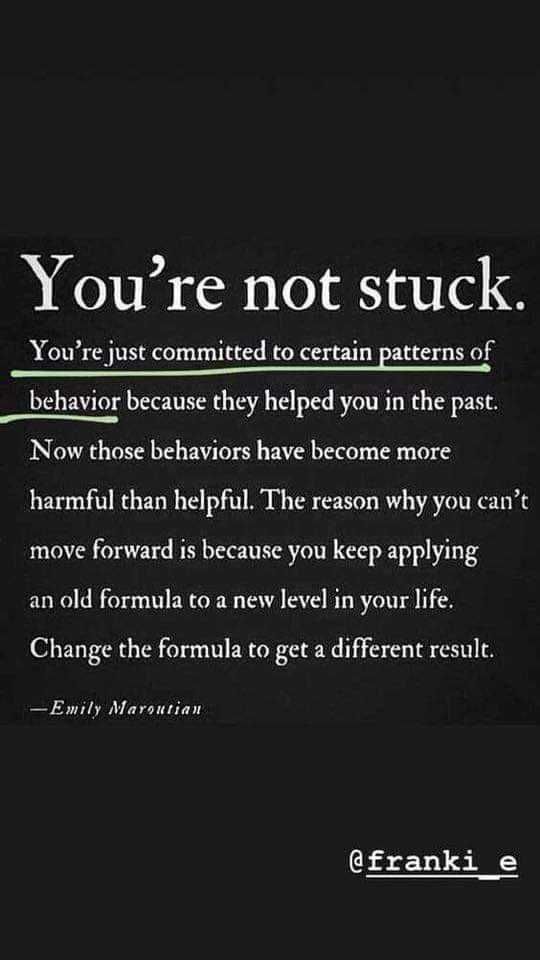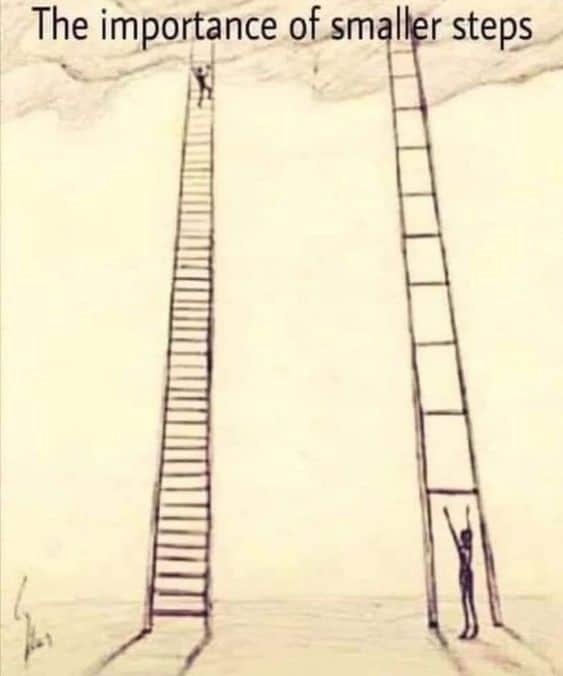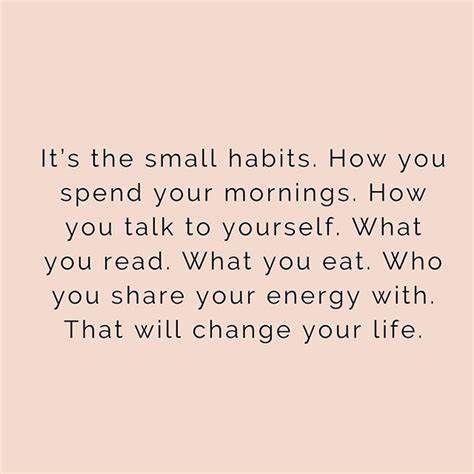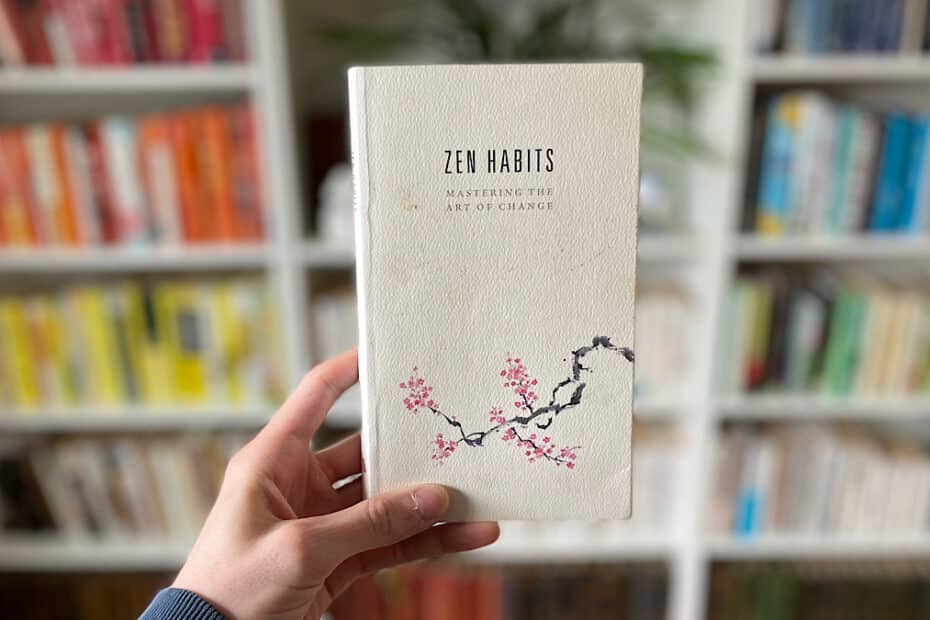“If you don’t wish to be a hot-head, don’t feed your habit. Try as a first step to remain calm and count the days you haven’t been angry. I used to be angry every day, now every other day, then every third or fourth… if you make it as far as 30 days, thank God! For habit is first weakened and then obliterated. When you can say ‘I didn’t lose my temper today, or the next day, or for three or four months, but kept my cool under provocation,’ you will know you are in better health.”
Epictetus, Discourses, via The Daily Stoic (Page 150)
“Change and loss are deeply connected—there cannot be change without loss.”
Stephen Grosz, The Examined Life (Page xii)
Tony Robbins Quote on Complexity and How It’s The Enemy of Execution
“Complexity is enemy of execution.”
Tony Robbins
Beyond the Quote (Day 380)
I have two bamboo plants. One in my living room and one in my kitchen. The one in my living room is dying. The one in my kitchen is thriving. Same bamboo. Same house. Same caregiver. Same fondness for both. The only difference is their location.
Read More »Tony Robbins Quote on Complexity and How It’s The Enemy of Execution“Everything is interconnected. Gratitude improves sleep. Sleep reduces pain. Reduced pain improves your mood. Improved mood reduces anxiety, which improves focus and planning. Focus and planning help with decision making. Decision making further reduces anxiety and improves enjoyment. Enjoyment gives you more to be grateful for, which keeps that loop of the upward spiral going. Enjoyment also makes it more likely you’ll exercise and be social, which, in turn, will make you happier.”
Daniel J. Siegel, The Upward Spiral
“Every single qualification for success is acquired through habit. People form habits and habits form futures. If you do not deliberately form good habits, then unconsciously you will form bad ones. You are the kind of person you are because you have formed the habit of being that kind of person, and the only way you can change is through habit.”
Albert Gray, The Common Denominator of Success
“The key—if you want to build habits that last—is to join a group where the desired behavior is the normal behavior.”
James Clear, Blog
James Clear Quote on Taking Action and Why Today Might Be The Best Time To Act
“Today might be the best chance you have to take action. The longer you wait, the more deeply embedded you get in your current lifestyle. Your habits solidify. Your beliefs harden. You get comfortable. It will never be easy, but it may also never be easier than it is right now.”
James Clear, Blog
Beyond the Quote (229/365)
Your ability to get done what you know you need to get done, even when you don’t want to do get it done, only gets easier (ironically) the more you actually get it done. Did you catch that? In other words, action begets action. Consistent action taken at consistent times for certain tasks formulate habits. And habits make taking action easier. Aligning your life with this truth can help you maximize your efficiency in effort and expedite your path to success.
Read More »James Clear Quote on Taking Action and Why Today Might Be The Best Time To Act“The first mistake is never the one that ruins you. It’s the spiral of repeated mistakes that follows. The problem is not slipping up; the problem is thinking that if you cannot do something perfectly, then you shouldn’t do it at all…”
James Clear, Blog
Charles Colton Quote on Uprooting Vices and Planting Virtues
“He that has energy enough to root out a vice should go further, and try to plant a virtue in its place.”
Charles Caleb Colton
Beyond the Quote (107/365)
How hard is it to dig up the roots of an old tree? Even trying to dig up the roots of a small tree or a bush can be incredibly hard. This is why, after a tree gets cut down, the stump is either left behind or it’s sawed down and the roots are simply left underground. Trying to take all of the roots up from a cut down tree simply isn’t worth the time and effort it requires in most cases.
Now, how hard is it to plant a seed for a new tree? Even planting a seed for the mightiest of trees is a breeze. There might be some variance in the specifics, but for the most part, you prep the land/ soil, dig a hole to the proper depth, place the seed in the hole, put the soil back on top of it, and make sure it gets enough water and sun and voila! You’re done.
Read More »Charles Colton Quote on Uprooting Vices and Planting Virtues10 Sobering James Clear Quotes on Making Progress from Atomic Habits
Excerpt: Massive action leads to massive results—but it can also (often) lead to quitting. Read our James Clear quotes on making progress and adjust.
Read More »10 Sobering James Clear Quotes on Making Progress from Atomic Habits
16 Leo Babauta Quotes from Essential Zen Habits and How To Master the Art of Change
Excerpt: Lifestyle change is hard but it doesn’t have to be confusing. Read our 16 Leo Babauta quotes from Essential Zen Habits to find out more.
Read More »16 Leo Babauta Quotes from Essential Zen Habits and How To Master the Art of Change
“Why quit cigarettes or all those sweets you’ve been eating? Isn’t life short and meant to be enjoyed? Don’t you deserve a treat? Yes, these are the justifications I gave myself too. And they’re a load of bull. Life is short, so why waste it on pure junk? Those things don’t make you happy—if anything, they made me less and less happy about myself. I’ve been happier once I gave up those habits and learned to be healthy and trustworthy to myself. Eating healthy food is a treat. Living smoke-free is pure bliss. But the biggest reason to change is that you love yourself. You don’t need to harm yourself to find happiness and contentment. Taking care of yourself is a form of self-compassion, and the sooner you start, the sooner you’ll feel good about how you’re loving yourself.” ~ Leo Babauta, Essential Zen Habits (Page 148)
“If you plunge into really cold water, you’ll be shocked, and you’ll hate it. But if you go into water that’s only a little colder than room temperature, it won’t seem too bad. After awhile, it’ll feel pretty normal. Then if the water’s temperature drops a little more, it won’t seem too bad, and soon that will become normal. You adjust. When it comes to changing your life, don’t plunge into the freezing water. You’ll soon get out of the water and be afraid of going in again. Instead, take a dip in slightly cool water. Make a very small change. Adapt to that, then make another. Gradually, through a series of small changes, you’ll see amazing progress.” ~ Leo Babauta, Essential Zen Habits (Page 126)
Steve Penny Quote on Embracing Unforeseen Detours Rather Than Fighting Them
“Life is full of unforeseen detours. Circumstances happen which seem to completely cut across our plans. Learn to turn your detours into delights. Treat them as special excursions and learning tours. Don’t fight them or you will never learn their purpose. Enjoy the moments and pretty soon you will be back on track again, probably wiser and stronger because of your little detour.”
Steve Penny
Beyond the Quote (46/365)
In his book, Essential Zen Habits, Leo Babauta shares a mental analogy that can help you stay on track towards accomplishing your goals—or better yet, not stay on “track” at all yet continue heading in the direction of your goals in a more flexible, effective manner. You see, for many people, the idea of a plan gets equated to mental “train tracks” that get laid out so that you, the train, can power forward in a smooth, straight line down the track towards your destination.
Read More »Steve Penny Quote on Embracing Unforeseen Detours Rather Than Fighting Them“Resistance can be overcome by doing the smallest possible step. For meditation, I just had to get my butt on the cushion. For writing, I just had to open up a document and write a few words. For cooking healthy food, I just had to get out a knife and an onion. For studying a language, I just had to press ‘play’ on the audio lesson. For yoga, I just had to get into child’s pose. For blogging, I just had to open up the form for writing a new post. For flossing, I just had to floss one tooth. For reading, I just had to open up the book and read a sentence. I think you get the point. Find the minimum viable habit. The smallest increment of doing the activity. The least objectionable version. And the resistance is overcome.” ~ Leo Babauta, Essential Zen Habits (Page 80)
Leo Babauta Quote on Using Mistakes As Feedback
“Use mistakes as feedback. They’re not signs that you’re a bad person or have no discipline. They’re signs that you need to adjust.”
Leo Babauta, Essential Zen Habits (Page 71)
Beyond the Quote (39/365)
In his book, Essential Zen Habits, Leo Babauta shares a simple story about mistakes that might help you shift your paradigm from looking at mistakes as catastrophic failures to seeing them as opportunities for indispensable feedback. Imagine you are walking across a pond using a small stone path. It’s not the most stable path and it zig zags across the water, but can none-the-less get you to the other side. If you wanted to get to the other side safely and dry, you would have to carefully place each step and make the proper balance adjustments along the way (I believe in you).
Read More »Leo Babauta Quote on Using Mistakes As Feedback“What’s the typical feedback loop for someone who doesn’t exercise much? When she does the exercise, she gets discomfort, sweatiness, tiredness, maybe even soreness. That’s negative feedback for doing the exercise. Not doing the exercise is much more comfortable, because she’s on the Internet doing easy, mildly pleasurable tasks. That’s positive feedback for not doing the exercise. The combination of these two feedback loops is why—at first—it’s so hard to form the exercise habit. People are up against much more than they realize, because no amount of willpower can overcome a setup of feedback loops that go against the behavior they’re trying to create. And it works like that for every single habit: eating junk food and shopping and playing games are easy habits to create and hard to break, while exercise and mediation and eating vegetables and learning languages are much harder. All because of the feedback loops. So what are we to do? Reverse the feedback loops to get the behavior we want. We want positive feedback for the habit we’re creating: rewards, praise, physical pleasure, spending time with a friend, getting stars on a chart, continuing a streak, a feeling of accomplishment, enjoying the activity with a smile. We want negative feedback for not doing the habit: embarrassment of people knowing you didn’t do it, losing a bet, enduring some embarrassing consequence, losing the streak you’ve created, experiencing some kind of difficulty or loss. Grease the slope. Create public accountability. Set up rewards and consequences. The smarter you’ve set up your feedback loops, the better you’ll be at doing the habit.” ~ Leo Babauta, Essential Zen Habits (Page 42)




